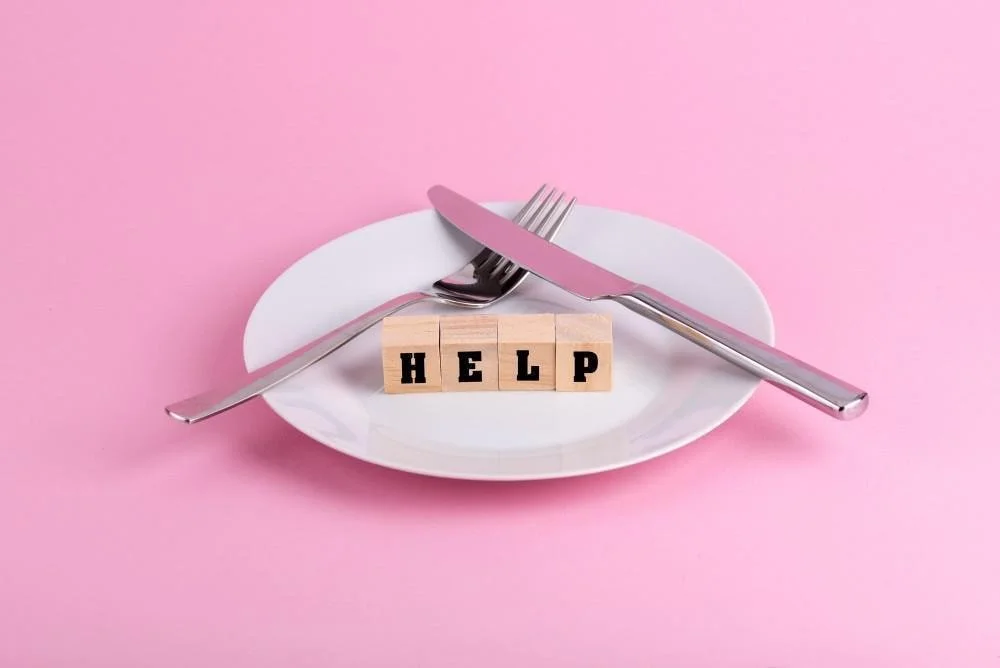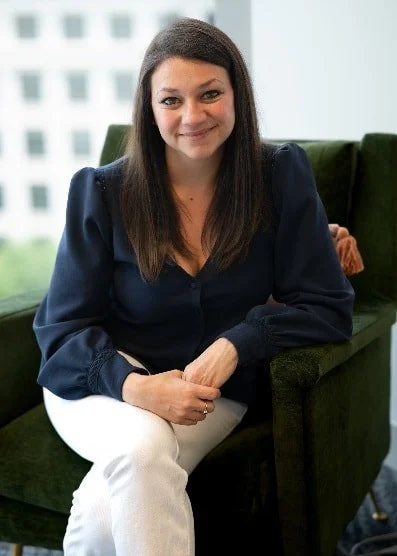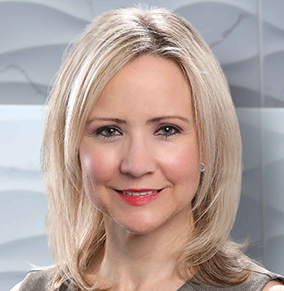Who are the Best Eating Disorder Therapists in Charlotte, NC?
Hi and, if you're new here, welcome! My name is Dr. Jess Ribeiro. As a clinical psychologist with a passion for helping individuals fully recover from their eating disorders, I know how important it is to find the right therapist -- someone who not only has the expertise but also the right approach to support you during your recovery.
A Little About Me
I've had the privilege of working in this field for many years. I earned my BA in Psychology from the University of Pennsylvania and my PhD in Clinical Psychology at Florida State University. I completed my pre-doctoral residency at the Warren Alpert Medical School of Brown University, followed by post-doctoral fellowships at Harvard University and Vanderbilt University. Across these experiences, I’ve worked at all levels of care, from inpatient settings to outpatient private practice, and I’ve been fortunate to receive extensive training in leading evidence-based treatment approaches.
Before shifting full-time to my private practice, I spent many years as a tenured professor at a large research university. When in that role, I spent a lot of time diving into research, writing journal articles (and hoping they didn't put anyone to sleep), mentoring, and training future clinical psychologists. I've authored over 80 peer-reviewed journal articles, many of which are in the field’s leading journals. I've also been recognized as a “Highly Cited Researcher” by the Web of Science, which recognizes scientists whose work ranks in the top 1% of citations in their field. I've been named a “Rising Star” by the Association of Psychological Science and Best Early Career Researcher by the American Association of Suicidology. My work has been featured in outlets like The New York Times, The Wall Street Journal, and Scientific American.
These days, I’m putting my past life as a tenured professor to good use. While I used to spend my days buried in research and mentoring future clinical psychologists, now I get to take all that knowledge and actually help people directly on the ground -- which is great because what really drives me is helping people like you get back to living a full life as quickly as possible.
My Approach to Therapy
In my practice, I rely exclusively on evidence-based treatment, with a particular focus on cognitive-behavioral approaches. For eating disorders including anorexia nervosa, bulimia nervosa, binge eating disorder, other specified feeding and eating disorder as well as disordered eating and body image concerns, I specialize in CBT-E (Enhanced Cognitive Behavioral Therapy for the Treatment of Eating Disorders), which is the gold-standard treatment for adults suffering from those conditions. In my practice, I also see patients suffering from avoidance/restrictive food intake disorder (ARFID), where I specialize in CBT-AR (CBT for ARFID). My goal is to provide treatment that truly works, driven by the latest scientific evidence and personalized to meet the unique needs, strengths, and goals of each individual I work with.
Finding the Right Fit
If you’re considering therapy and feel that my approach might be a good fit for you, I encourage you to reach out. Although I'm physically based in Charlotte, NC, I'm able to provide therapy to the vast majority of states in the United States, since I'm accredited by PSYPACT. While I’m passionate about helping those struggling with eating disorders, I also understand that my practice may not be the best fit for everyone. If you're interested in long-term or exploratory therapy, unstructured talk therapy, or are looking for treatment for issues I don't specialize in (e.g., substance use, trauma), it’s important to find a therapist who can best meet your needs.
That’s why I’ve compiled a list of some of the best eating disorder therapists in Charlotte, NC. Whether or not we end up working together, I want to ensure you have access to the resources and support you need. This list is meant to be a helpful starting point, so you can find the right therapist for your unique situation.
Three of the best Charlotte eating disorder therapists
1. Jessica Ribeiro, PhD
Dr. Jessica Ribeiro is a clinical psychologist specializing in the treatment of eating disorders, with over 15 years of clinical, research, and teaching experience. She also has extensive experience treating obsessive compulsive disorder, anxiety, and depression. She has been named a Rising Star by the Association for Psychological Science, Best Early Career Researcher by the American Association of Suicidology, and a Highly Cited Researcher by Web of Science. She has authored more than 80 peer-reviewed publications in leading scientific journals, with her research being cited over 14,000 times and covered in the popular press, including The New York Times, The Wall Street Journal, NBC, and BBC, among others.
Credentials: PhD
Licensed in Florida, North Carolina, and New Jersey; certified to provide telehealth across all 42 PSYPACT participating states
Education:
BA, University of Pennsylvania
PhD, Florida State University
Predoctoral Residency: Warren J. Alpert Medical School of Brown University
Postdoctoral Fellowships: Harvard University; Vanderbilt University
Google Rating: 5.0
Specialty areas: eating disorders, depression, anxiety disorders, obsessive compulsive disorder
Years in practice: 15+ years
2. Nikki Pagano, LCSW
Nikki Pagano is a licensed clinical social worker with considerable expertise in the treatment of eating disorders. She also has expertise in treating obsessive compulsive disorder and selective mutism in children. Before transitioning to her private practice, she served director of Adolescent Services at the Columbia Center for Eating Disorders. Nikki is certified in Family-Based Treatment (FBT) and is highly trained in several therapeutic approaches, including Acceptance and Commitment therapy (ACT), Exposure and Response Prevention (ERP), Enhanced Cognitive Behavioral Therapy (CBT-E), and Cognitive Behavioral Therapy for ARFID (CBT-AR). She is also a professional member of the Academy of Eating Disorders.
Credentials: LCSW
Licensed in North Carolina, New York, South Carolina, Georgia
Education:
BA, Davidson College
MSW, Columbia University
Google Rating: Not Available
Specialty areas: eating disorders; obsessive compulsive disorder; anxiety disorders; selective mutism
Years in practice: 10+ years
3. Angela Redlak-Olcese, Psy.D., CEDS-S
Dr. Angela Redlak-Olcese is a licensed psychologist who specializes in the treatment of eating disorders. She has training in gold-standard evidence-based psychotherapy options for eating disorders, including CBT-E and FBT. She has worked across residential, partial hospitalization, intensive outpatient, and outpatient levels of care, and is a certified eating disorder specialist-supervisor. She is a member of the Academy of Eating Disorders and the International Association of Eating Disorder Professionals.
Credentials: PsyD
Licensed in North Carolina, South Carolina, and California
Education:
PsyD, California School of Professional Psychology
Pre-doctoral Internship: The Guidance Center
Google Rating: 3.0
Specialty areas: eating disorders and related disorders.
Years in practice: 20+ years
FAQs about therapy for eating disorders
-
Recognizing the need for eating disorder therapy can be challenging, especially because these issues often develop gradually. If you’ve found yourself obsessing over food, your body shape, or your body weight, that’s a red flag. Maybe you’re skipping meals, having difficulties knowing what to eat, struggling with binge eating, avoiding social events that involve food, or engaging in intense or rigid exercise routines. Perhaps you’re using other compensatory behaviors like vomiting or using laxatives after eating. Or maybe you’re terrified of weight gain or struggling with body image to the point where it’s affecting your day-to-day life.
If any of this sounds familiar, you might benefit from individual therapy with a provider who specializes in eating disorders. The onset of an eating disorder can be subtle and easy to miss -- they often start small and then spiral into something much bigger. It's also important to know that you don’t need to check every box or experience all eating disorder symptoms to benefit from talking to someone. Even if you’re just feeling “off” about your relationship with food or your body, it’s worth reaching out.
The truth is, therapy isn’t just for people in crisis -- it’s for anyone who wants to improve their mental health and well-being. So if you’re on the fence, consider this your nudge to take that step. You don’t have to navigate this alone. There’s support out there.
-
Navigating the world of eating disorder therapy can be confusing and overwhelming, especially when there are so many providers who position themselves as experts. While evidence-based therapies are the gold standard, the reality is that not everyone uses them. Some clinicians rely on approaches that haven’t been scientifically tested or proven effective. Others might try to use evidence-based methods or some elements of those treatments but don’t have the proper training or supervision, which means they might not be delivering the treatments as intended. This can seriously compromise how well the therapy works, often leaving clients feeling discouraged and stuck. When therapy isn’t effective, it can be frustrating -- not to mention the time, money, and energy that clients lose engaging in treatments that don’t deliver results. This is why it’s so important to find a therapist who uses well-established evidence-based methods. (I write more on this broad issue here.)
Having a better understanding of what treatments have the strongest research support can be helpful. So here's a very brief primer: when it comes to eating disorders, the silver lining is that we have a few treatment options that have a strong evidence base. For children and adolescents, especially those suffering from anorexia nervosa, our best available treatment is Family Based Treatment for Eating Disorders -- sometimes, this is referred to as the Maudsley Method. FBT involves working with patients' families in family therapy rather than working alone with the child or adolescent in individual therapy. When it comes to adults, our best available intervention is Enhanced Cognitive Behavioral Therapy for the Treatment of Eating Disorders (CBT-E) -- of note, CBT-E is different than general cognitive behavioral therapy (CBT). There's also a growing evidence base that this approach works well for adolescents. When it comes to the treatment of ARFID, Cognitive Behavioral Therapy for ARFID (CBT-AR) is our best option.
In my practice, I specialize in the treatment of adults and older adolescents. Therefore, I specialize in the use of CBT-E and CBT-AR. I stick to these proven approaches to help my clients make real progress and get back to living their lives fully. The right therapy can make all the difference, so it’s worth being selective when choosing your provider to ensure that you're getting the highest quality care available.
-
If you're looking for more resources for where you can find eating disorder treatment in your area, here are a few options:
National Eating Disorder Association (NEDA) maintains a Treatment Provider List on their website that allows you to search for providers who provide both in person and online services in your area.
Anorexia Nervosa and Associated Disorders (ANAD) also has a treatment directory as well as a toll free helpline 1 (888)-375-7767 available Monday-Friday, 9am-9pm CST.
National Alliance for Eating Disorders (NAED) also maintains a treatment provider list and has a helpline 1 (866) 662-1235 available Monday-Friday, 9am-7pm ET. It also has a list of options for free and low-cost support groups.
Clinical psychologists who are PSYPACT-approved, like myself, can also provide care across the majority of states. So, if you're not based in Charlotte and looking for a specialized eating disorder provider, you may want to still reach out.
Take your first steps toward eating disorder recovery.
Struggling with an eating disorder can feel overwhelming and isolating, but there is hope. We have considerable research showing that evidence-based treatments, like CBT-E, are highly effective in treating eating disorders. That's why I focus on these approaches in my practice. I firmly believe that recovery is possible, and with the right support, you can regain control over your relationship with food and your body.
If thoughts about eating and body image are consuming your life, it doesn’t have to stay that way. My goal is to help you reach a place where these concerns no longer dominate your thoughts and behaviors so that you can live your life fully again.
If you’re interested in learning more or exploring whether my practice is a good fit for you, please feel free to reach out for a free consultation. I’m here to help you take the first step toward recovery.





